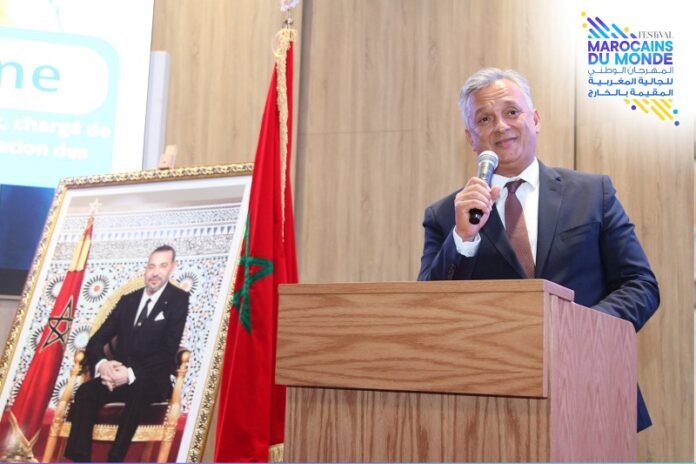In an unusual scene, Morocco’s Minister of Investment, Karim Zidan, stood out during the sixth edition of the Festival of Moroccans of the World held in Berkane.
His presence was neither symbolic nor protocol-based; rather, it represented a new form of ministerial engagement—rooted in proximity, direct interaction, and meaningful presence on the ground.
While key local officials were absent—from the provincial governor to senior security figures—Minister Zidan emerged as the central figure of the event. Not just a government delegate, he became an active participant, sitting among members of the Moroccan diaspora, listening to them, engaging in dialogue, and remaining present from morning until late evening.
This consistency sparked a deeper question: are we witnessing a shift in the role of ministers in Morocco?
Zidan did not act as an honorary guest. He behaved as a public servant committed to the idea that investment and development cannot be managed from behind office walls, but through direct dialogue with people—especially those who serve as Morocco’s global bridges: its diaspora.
Observers took note when the minister granted an extended interview—over 20 minutes long—to Diplomatique magazine, offering in-depth answers with clarity and calm, far from scripted statements. A rare move at a time when official communication often boils down to generic press releases.
Yet beyond the optics lies a deeper context.
The festival, held under the theme “Moroccans of the World: A Kingdom’s Radiance and Bridges for Development and Investment”, aligns closely with the Royal directives to mobilize the skills of the Moroccan diaspora and strengthen national ties.
But does the presence of a single minister embody this vision? And why were the territorial authorities absent from such a major event meant to celebrate and engage their citizens abroad?
The presence of the Berkane Provincial Council sent a positive signal about its openness to the diaspora’s potential. But the apparent disconnect between local and national authorities raises structural questions about coordination and institutional commitment.
Karim Zidan may not yet represent a full paradigm shift, but his presence in Berkane reopens the discussion on what defines an effective ministerial performance in Morocco today.
If a minister can engage, listen, and communicate with genuine humility, why should this remain the exception rather than the rule? And if direct connection with citizens is possible, what prevents it from becoming a standard practice?
Ultimately, Karim Zidan’s presence was not a routine official appearance, but a meaningful political gesture, suggesting that politics regains its substance when those in power choose closeness over distance, and commitment over formality.


